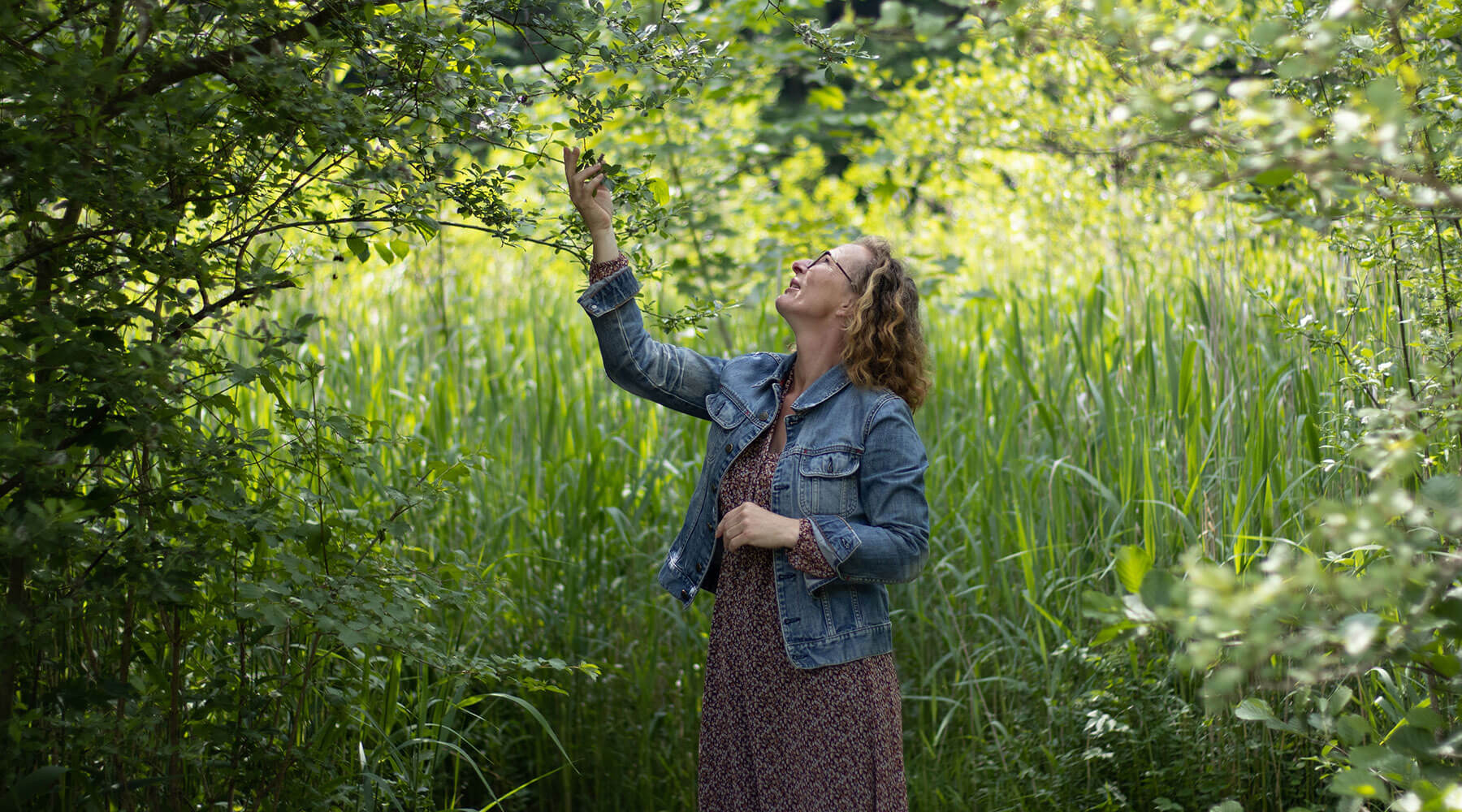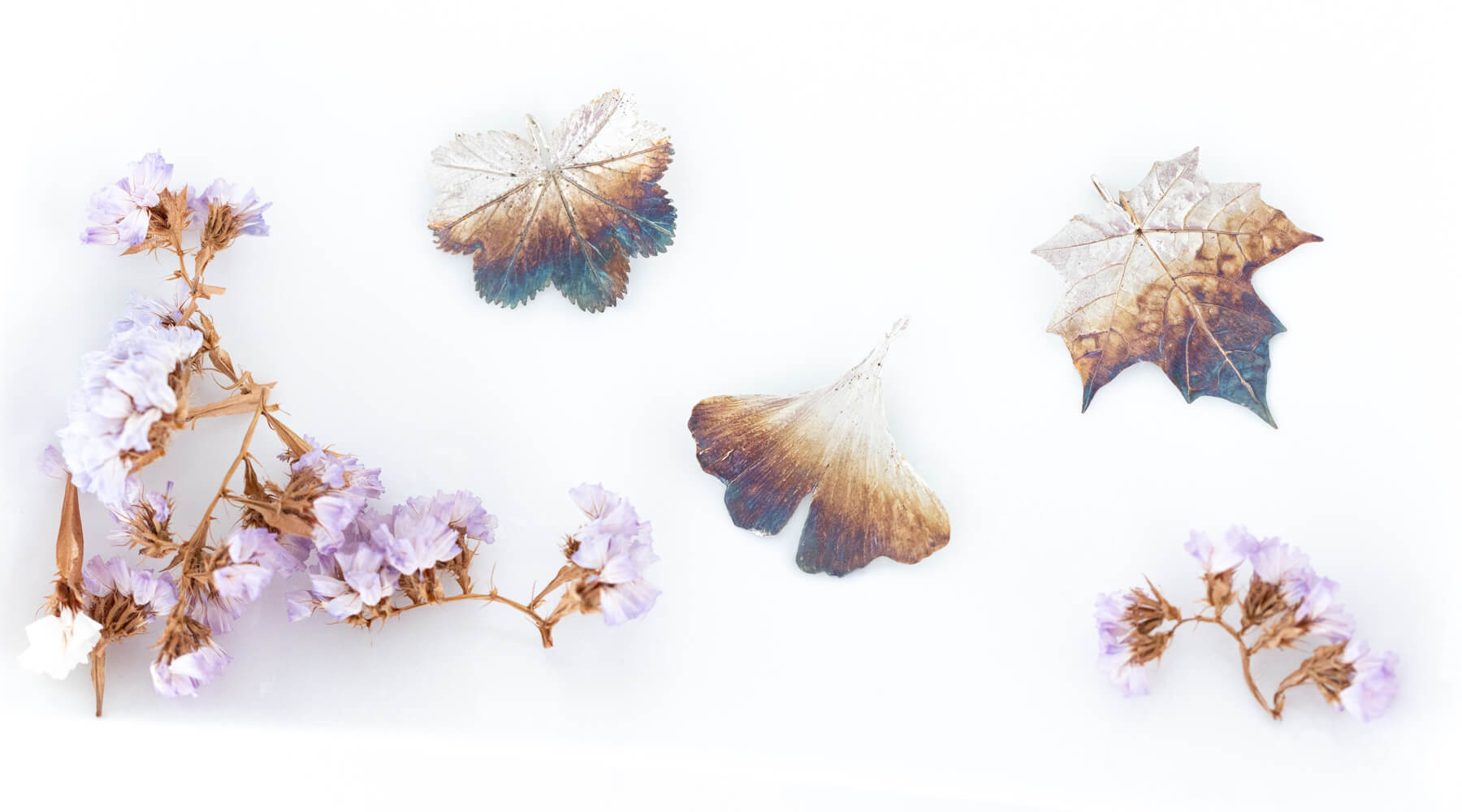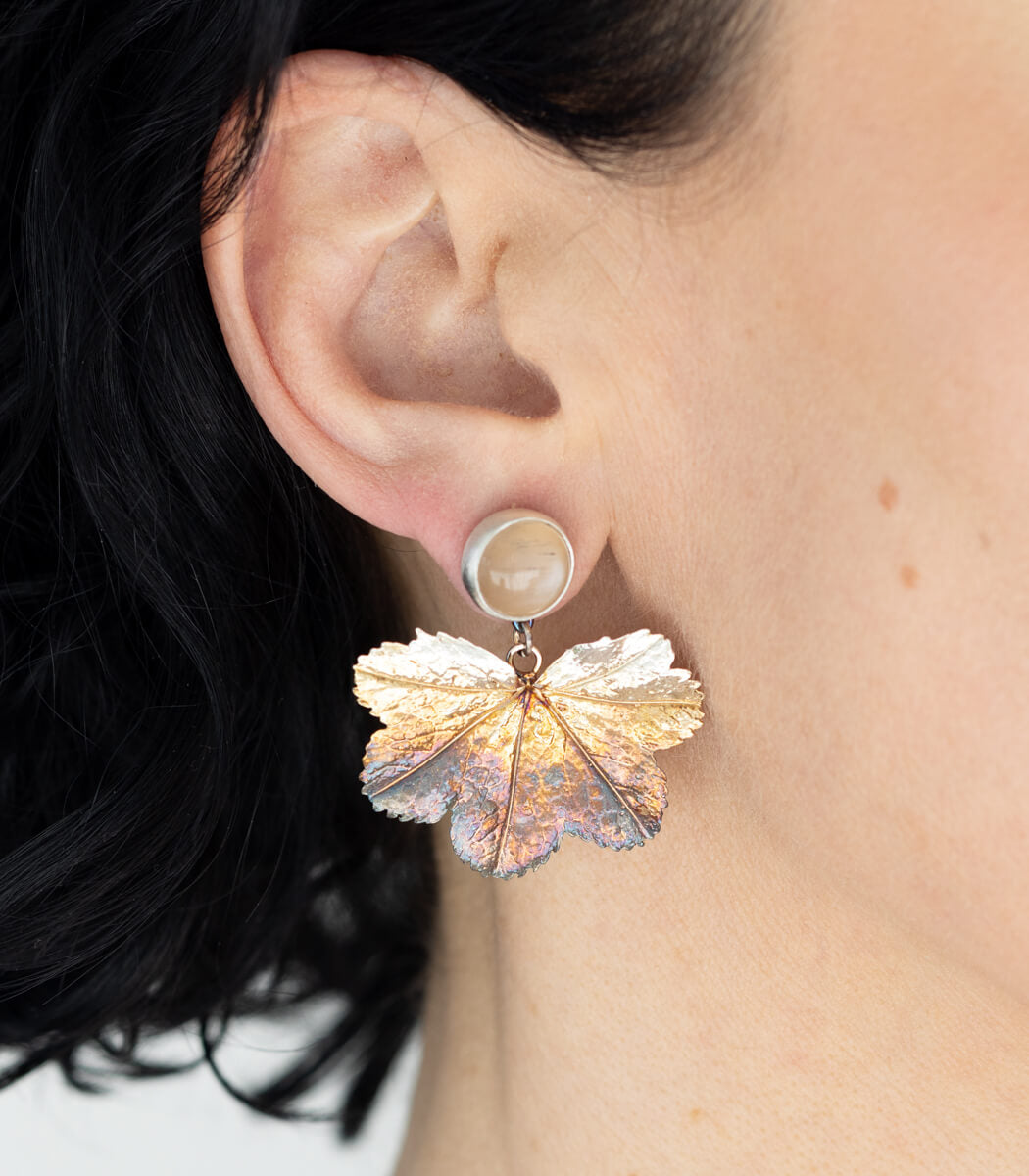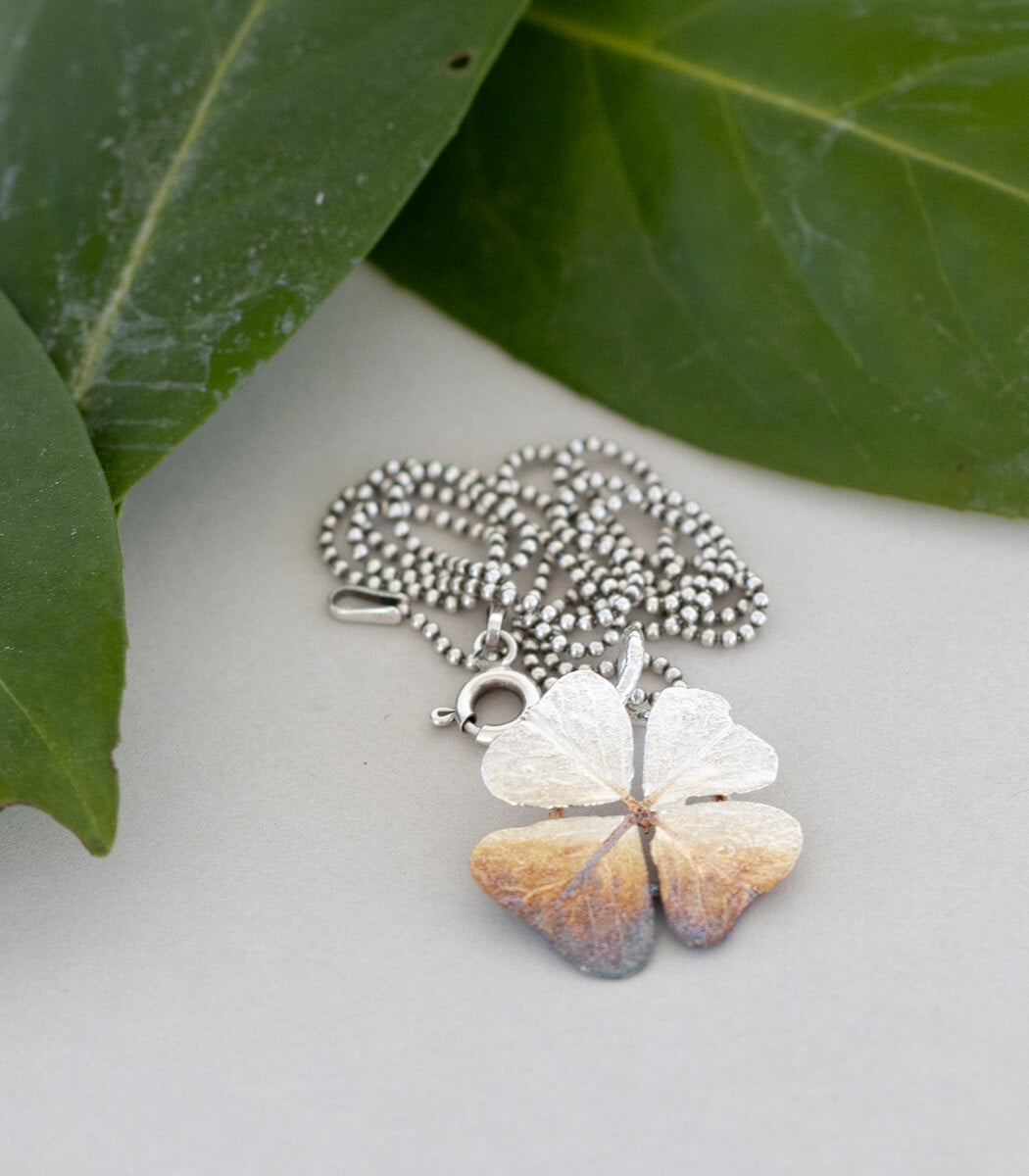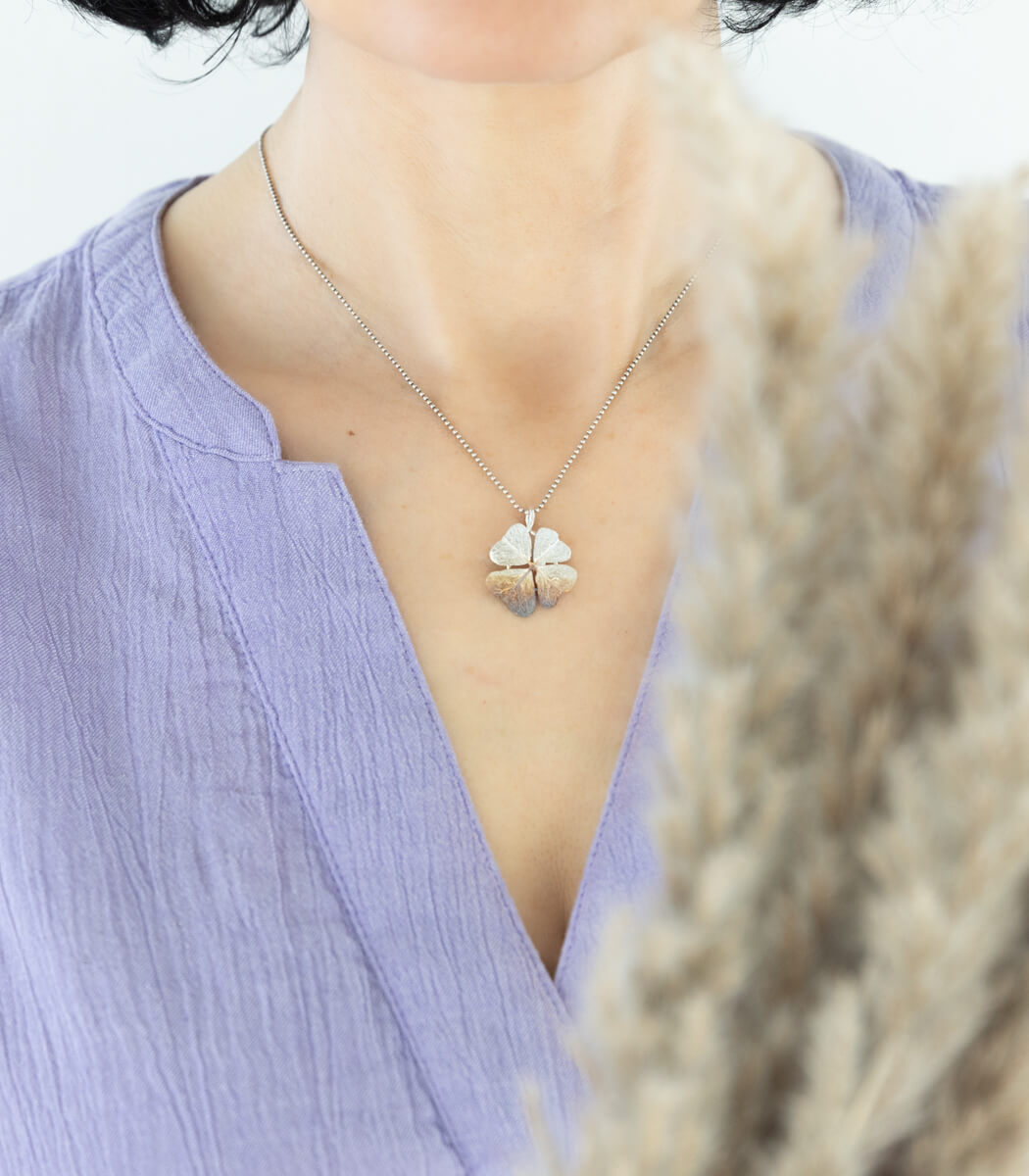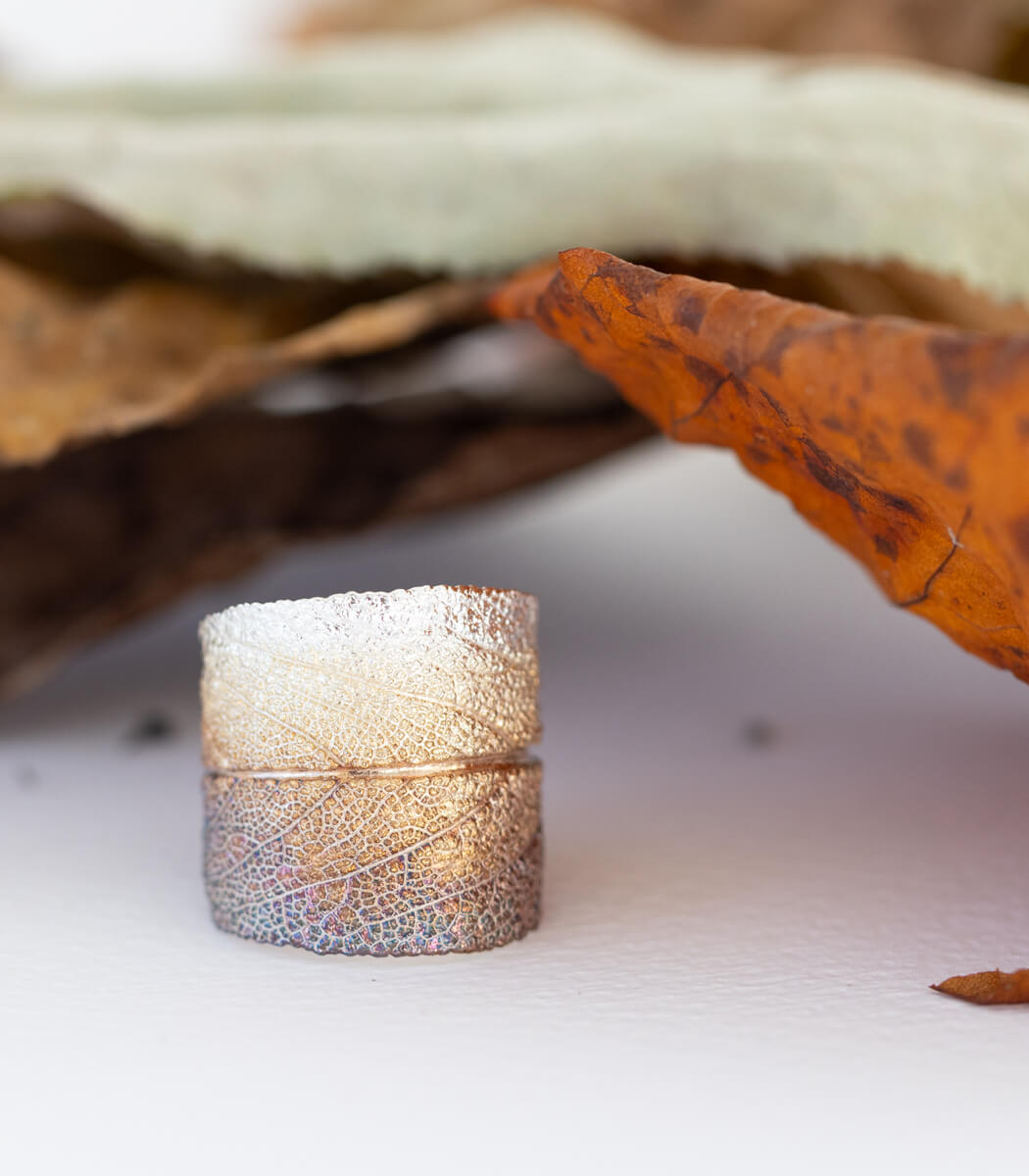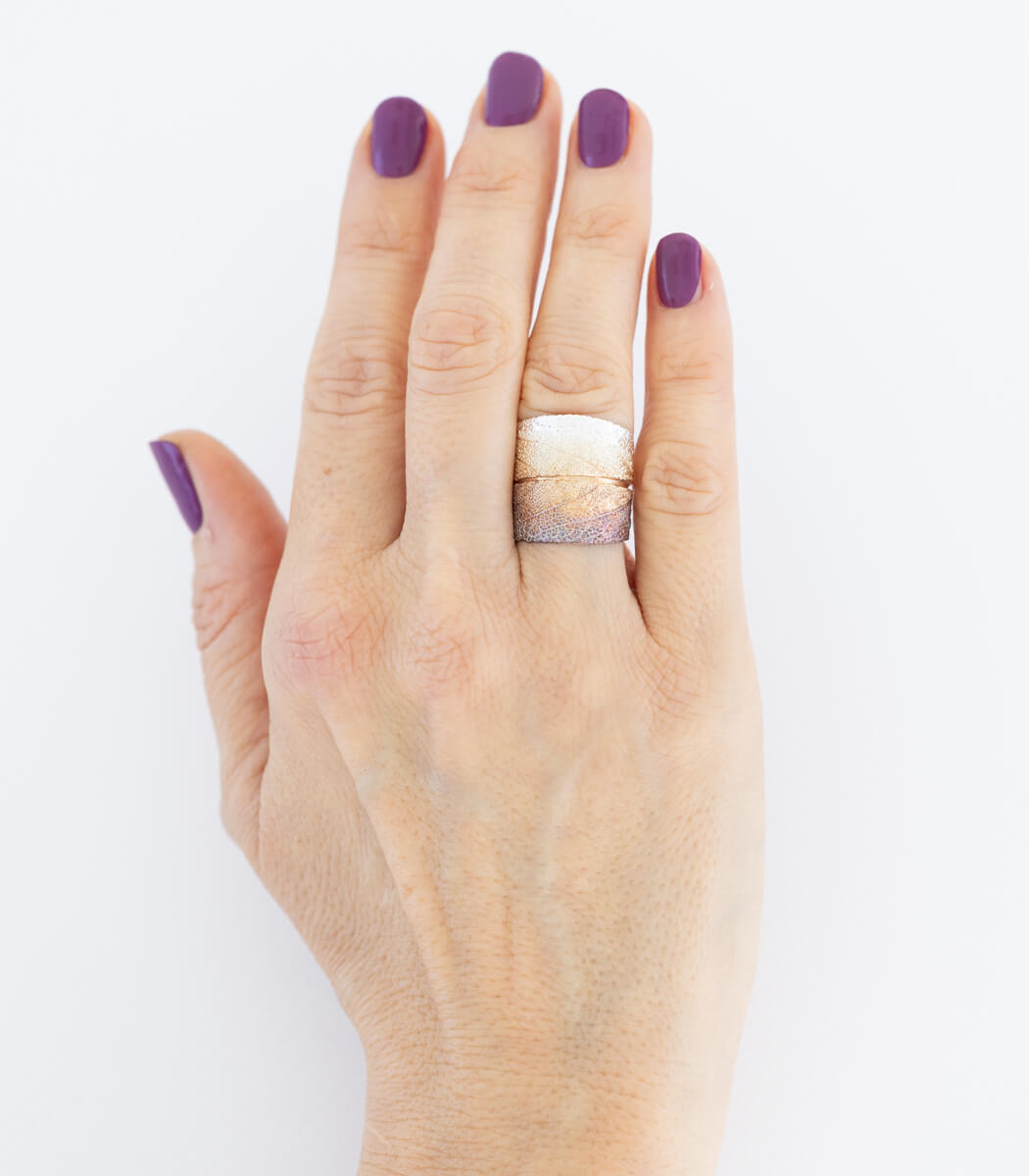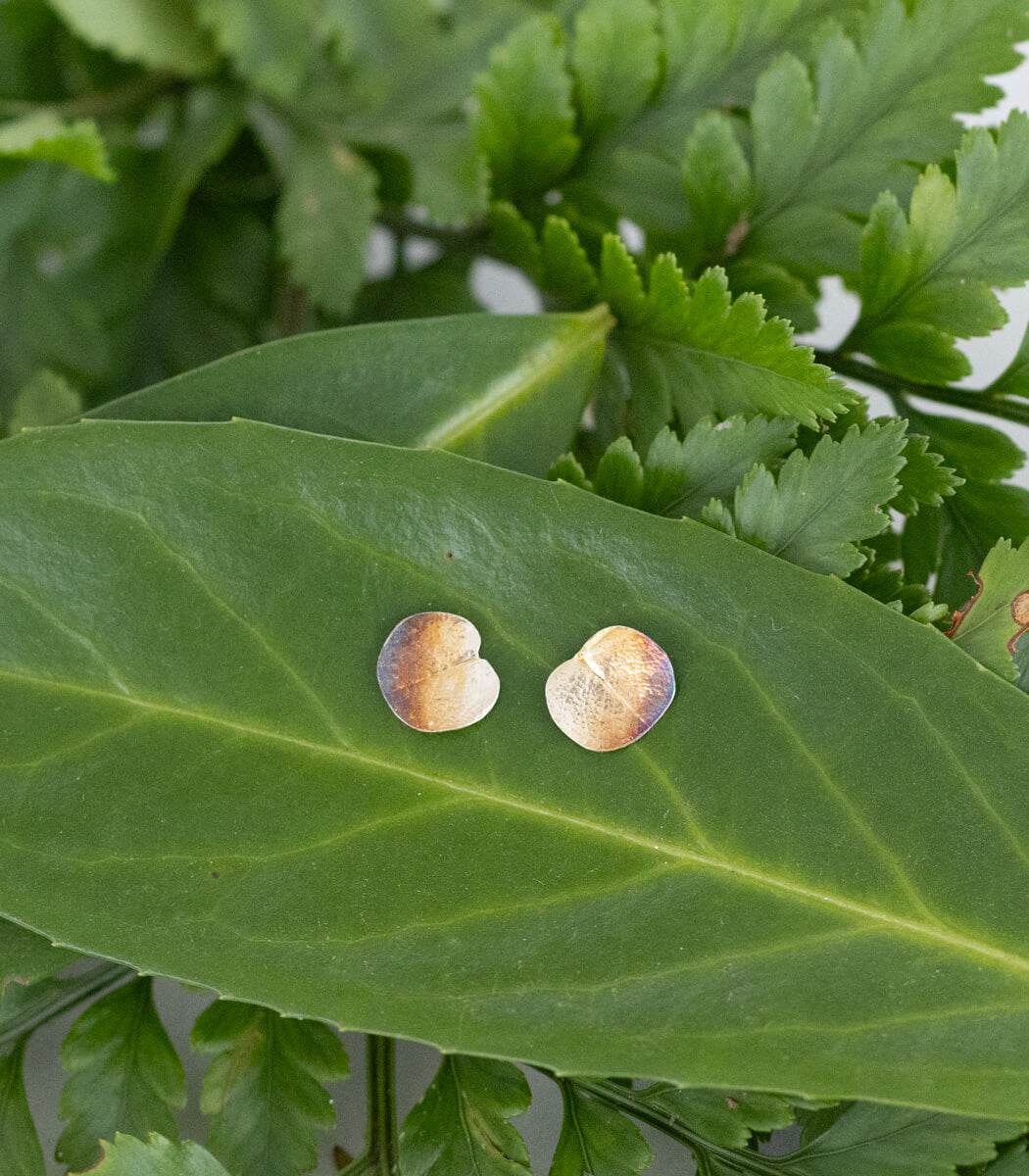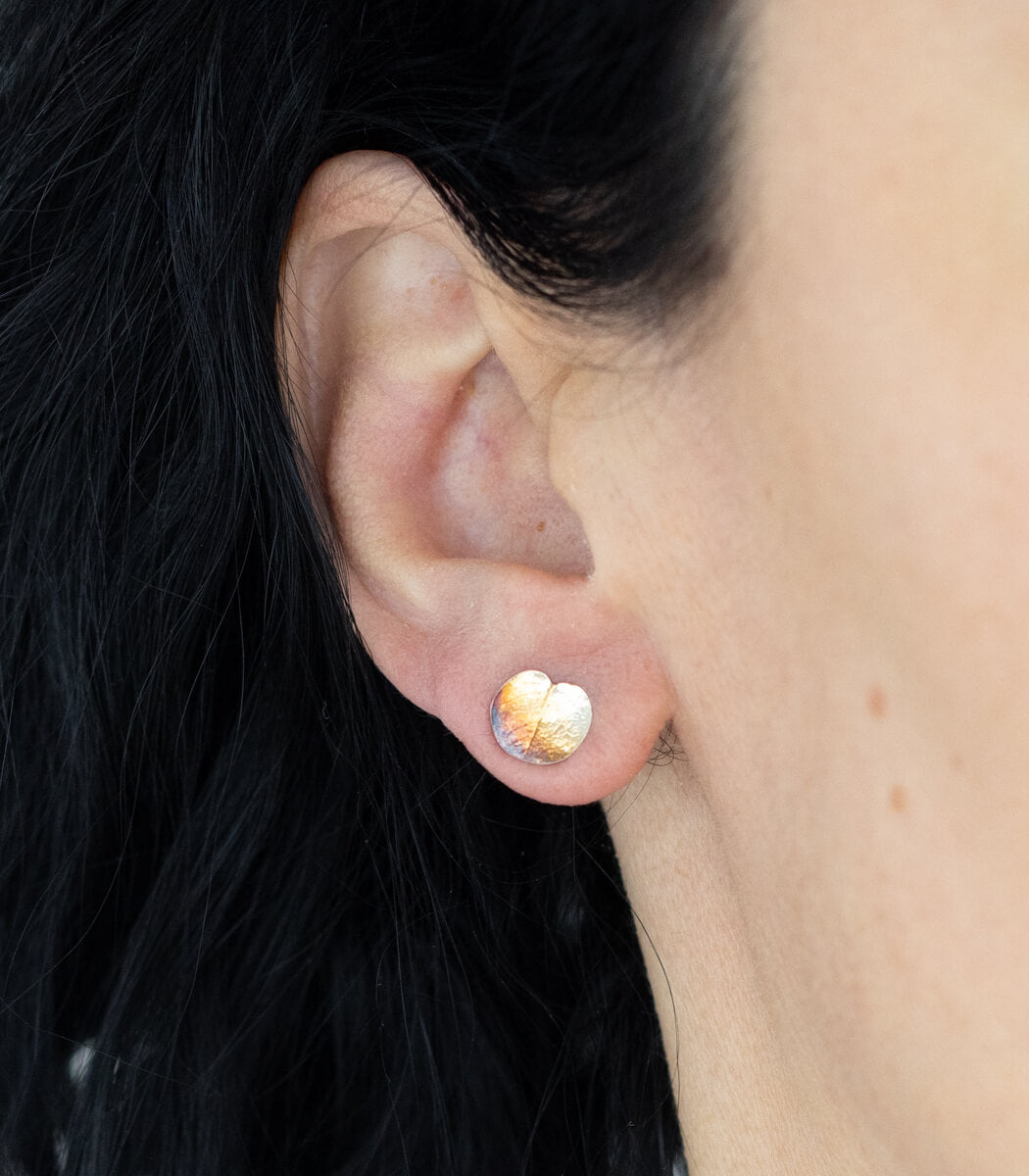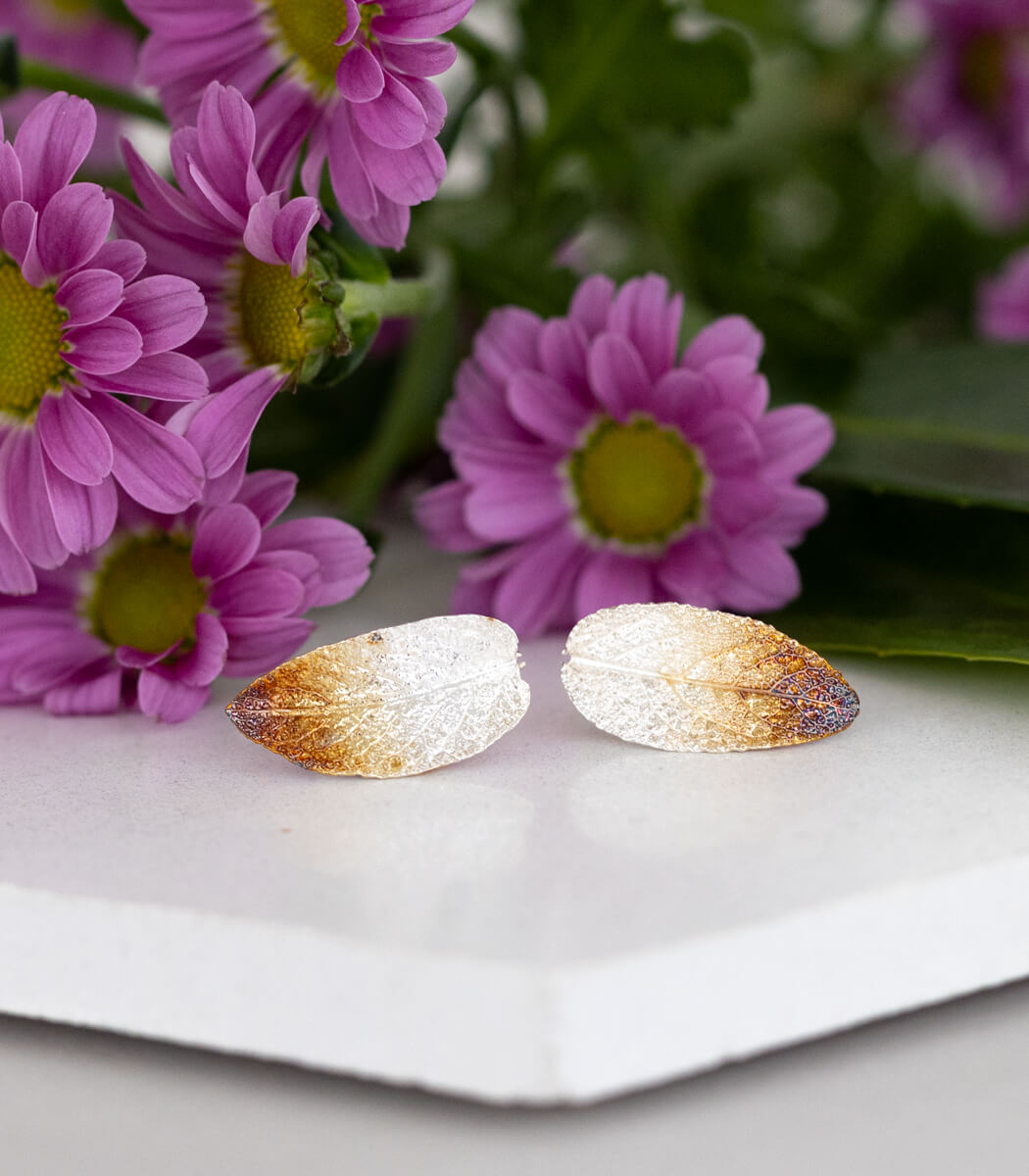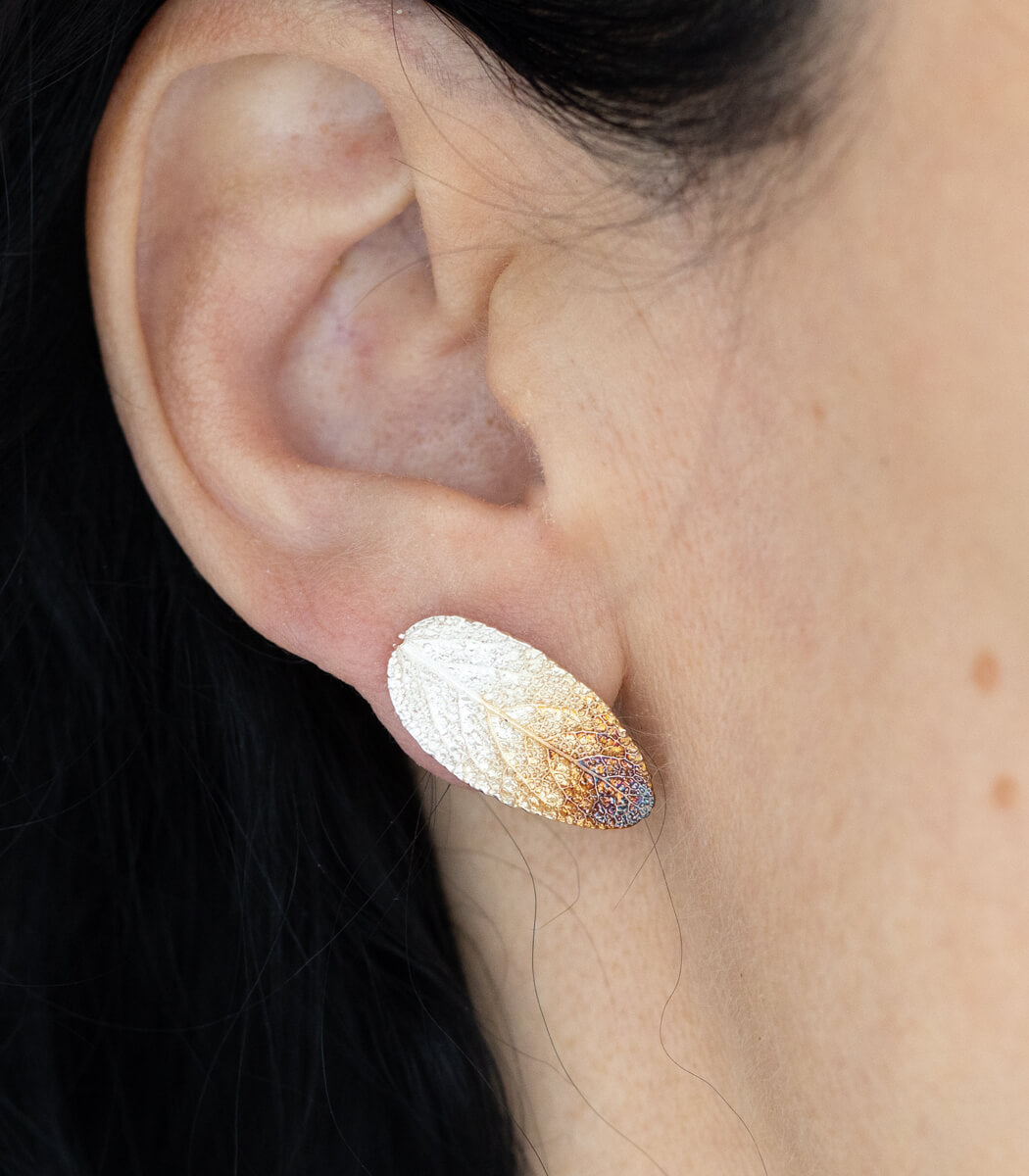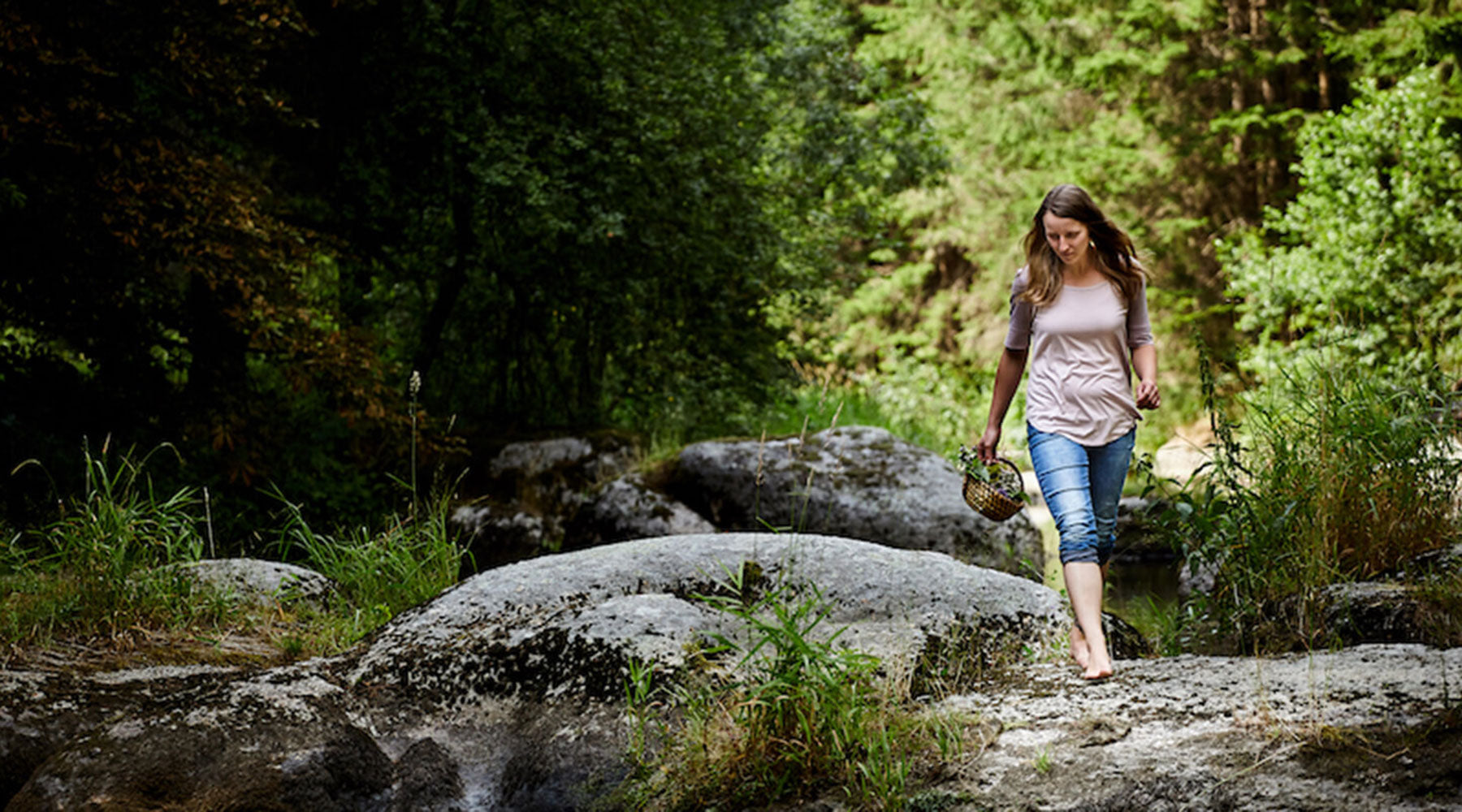
Gerda Holzmann combines wild herbs with energetics
This interview with Gerda Holzmann is part of a series of interviews with women who feel as connected to nature as I do. I speak to different women and their approach to nature and life.
Live your wild nature & strengthen your wild nature!
Please introduce yourself to us and tell us something about yourself and your career?
I grew up on a farm at an altitude of over 900 meters in the Waldviertel (Lower Austria) on the border with the Mühlviertel (Upper Austria). I have 4 sisters and am the middle child in the sibling order. Our life was strongly influenced by the cycle of nature, which we were able to experience first hand as children when we helped out in the fields and meadows. I built a strong relationship with our animals, I loved climbing trees and always looked forward to the solstice fire in the village. I am very grateful to have grown up so close to nature and so down to earth.

However, herbal knowledge was not part of my childhood and youth. My grandmother's "cure-alls" were limited to marigold ointment, arnica tincture and lemon balm spirit. (Sometimes you don't need more than that ;) There was also no one else in my family who knew anything about traditional herbal medicine. As a sandwich child, I like to fill in gaps. And later on, this gap magically attracted me. I bought my first herbal book during my studies after careful financial considerations. It was an eye-opener for me and like a bible to me. Soon after, I completed additional training to become a qualified energy therapist and later a qualified wild herb guide.
Where do you come from?
The Waldviertel highlands are my birthplace and my adopted home. I spent my teenage years at a high school in Krems/Donau. In my early twenties I studied in Vienna.
At 25, I moved back to the Waldviertel. I realized early on that my soul needs nature. Every day.

What job did you learn?
I have a bachelor's degree in anthropology. Before I became fascinated with herbs, I devoted my attention entirely to people and their nature. During my studies, I was particularly fascinated by physical functions and everything that was related to human history and our roots. The scientific approach to nature is an important basis for me. I supplement this basis with traditional traditions and intuition when imparting knowledge :)
Have you always been interested in nature and herbs?
For nature in general, yes, for herbs a little later.

You work with herbs and wild plants - why do you do that?
I was always a sickly child. That's why I came into contact with alternative medicine and energetic methods at an early age. Even as a teenager, I knew that I wanted to do an apprenticeship in this field. I wanted to take my health care into my own hands and understand what I needed to feel healthy. To be honest, herbs were love at second sight for me. During my biology studies, I began training to become a holistic kinesiologist. We often used nutritional supplements as energetic remedies here. I felt the need to combine energetics with something that felt more alive to me. When I stumbled across Dr. Dieter Schaufler's medicinal herbs course online, I knew straight away - that's it! I entered the room on the first day of the course and immediately felt like I was in the right place.
How did you come up with the idea of passing on your knowledge?
It is a matter close to my heart to demonstrate the value and properties of native wild herbs at every available opportunity. We have very powerful plants on our doorsteps. In my opinion, they deserve more attention and space in gardens. Common plants such as nettles, dandelions or yarrow can easily keep up with imported and typed superfoods and medicinal plants in some properties. In order to draw attention to the treasures that grow right under our noses and are so important to us, I am happy to pass on my knowledge and experience. I like to quote Walther Rathenau:
"The most beautiful and wonderful thing is the simplest."

What do you like about giving workshops on the topic of nature?
When I notice that the spark of enthusiasm has been ignited. And when I manage to get ground elder sceptics to try the plant after my love song :)
I offer wild herb hikes in the Waldviertel region. I design online courses and live webinars. My favorite topics are traditional herbal knowledge, smoking and the annual cycle festivals. I often hear that the way I impart knowledge is perceived as very down-to-earth, with a dose of humor and garnished with a pinch of natural spirituality.
What does a “normal” day look like for you?
Not nearly as romantic as you might imagine for a herbalist. I juggle my job as head of quality management at SONNENTOR, my events and individual energetic sessions at GrünKraft and my work as a lecturer at the Mauritiushof Nature Academy. I am also the head of the Wild Herb Guide and Natural Energetics sections of the Austrian Society for Animal-Assisted and Nature-Assisted Therapy and I organize a monthly regional market in Arbesbach (my hometown) on a voluntary basis. Together with my husband and my in-laws, I look after 4 cats, 7 chickens and 4 beehives, a garden and a field.
That sounds like a lot and yes, it is :). Nevertheless, everything fits together under the umbrella of a natural and down-to-earth lifestyle. That is what drives me. And the fruits that emerge from my many activities.

Do you enjoy being in nature?
I feel really at home in nature. I can switch off and quickly focus on the important things in life when my mind starts to get too busy.
Do you also have a special favorite place or place of power - where do you like to be the most?
I like to be near rivers in the forest. The Kamp flows near us, a small river that is characterized by its reddish color. In some places the river washes around granite rocks that you can climb on and enjoy the sound of the water. The Höllfall near Arbesbach is one such place. I can walk there from my village. I call the path my personal pilgrimage route.

Do you have a recipe for us that we can easily recreate even as "inexperienced" people and that supports our natural health?
My favorite herbal recipe is sour honey (oxymel). Since I am a hobby beekeeper, I can also use my own honey with this recipe. I find the most exciting sour honey with tree branches.
Sour honey, also called oxymel, is a drink full of herbal power with a harmoniously balanced sweetness and acidity of honey and apple cider vinegar. This ultimate tonic has been known since ancient times.
Since childhood, I have been prone to respiratory illnesses. These usually last a while. I can't take syrup for more than three days because my stomach goes on strike. I can take tree branch sour honey as an alternative to tree branch syrup for weeks.
Recipe
When collecting twigs, please note: Never collect too many from one branch and only collect from fully grown trees that are over 3m tall! Otherwise you would affect the growth of young trees. This recipe is particularly suitable for processing twigs because you do not need large quantities for sour honey.
Ingredients
0.5l apple cider vinegar naturally cloudy
1 kg honey
2 handfuls of twigs (from spruce, fir or pine)

preparation
Mix the apple cider vinegar with the honey until it has completely dissolved. Place the twigs loosely in a glass jar. Pour the vinegar mixture over them up to the brim. Close the jar and leave it on the windowsill for 6 weeks. Shake regularly. Then strain into bottles.
The tree branch sour honey is beneficial for coughs and colds. It strengthens you from the inside. Take 1 tablespoon pure 3 times a day or dilute it with 1/8l water.
Nature, herbs, but also sustainability and organic are very much on trend these days - why do you think that is?
We live in a highly technological and fast-moving society. We consume constantly and are slowly realizing that it does not satisfy us in a sustainable way. The effects of our lifestyle on nature are also becoming increasingly obvious. Environmental pollution, persistent chemicals in our clothing, on our fields, in our means of transport, climate change are with us all the time. People who want to maintain the balance in nature know that things must and can be done differently.
Nature is smart, we can learn from it and work with it. Stepping FORWARD to a more modest way of life that leaves less of a negative mark on our environment and the world at large is the smart way that ultimately means "survival".
The exploitative actions of the richest countries in the In my opinion, the world is currently developing into an evolutionary dead end.
Those who want to live close to nature, with the smallest possible footprint (not just CO2), are already in the process of developing further.
In my opinion, we should question the term "sustainability" as often as possible, because here too we often have quick, pseudo-solutions to satisfy our conscience without questioning the overall impact that the production of "sustainable" products has on the environment as a whole. Or how durable and recyclable products are. For example: is a newly produced T-shirt made of organic cotton more sustainable than a run-of-the-mill shirt from a second-hand shop that can still be worn for three years?

I don't know the answer to these questions either. My solution is to reduce my consumption of new products as much as possible and to use goods that have already been produced, even if they are not considered "sustainable", for as long as they last. I have had my smartphone for at least 6 years. I buy most of my clothes second-hand (regardless of the brand). I wash aluminum foil if I have been given food wrapped in it. I prefer plastic bags to paper bags because they last longer and are produced using far fewer resources. And I have been driving the same small car with 5l / 100 km for 10 years and I will drive it until it rusts away under my feet (which has unfortunately already started ;))
Why do we long to be more connected with nature and to live simply?
We humans are part of nature. It has been scientifically proven that we can relax particularly well in the forest. The chirping of birds or the sound of the sea or a stream calms us down. The view of greenery or the forest reduces stress levels considerably. All elements that are evolutionarily anchored in us. Nature is our home. The longing for nature could therefore perhaps also be interpreted as "homesickness".
You can find out more about Gerda Holzmann at gruene-kraft.at . She is also the author of two books, which you can find here in her shop . Gerda is also on Instagram .
You can find more interviews about great women and their approach to nature here:
Karin from Naturspirit
Stephanie from Atempause
Susanne from Naturzauberwerke
Tina from the herbalist
Melanie from Mint
Anja from Daisy & Sunshine
Andrea from Fermentista
Andrea from Yoga Cuisine
Marlies von Quendelgrün
Christine from Textpoterie
Doris from Made with Love
Alex from Die Kräutermadame
Bianca from Naturespiritauraspray
Gerda from GrünKraft

